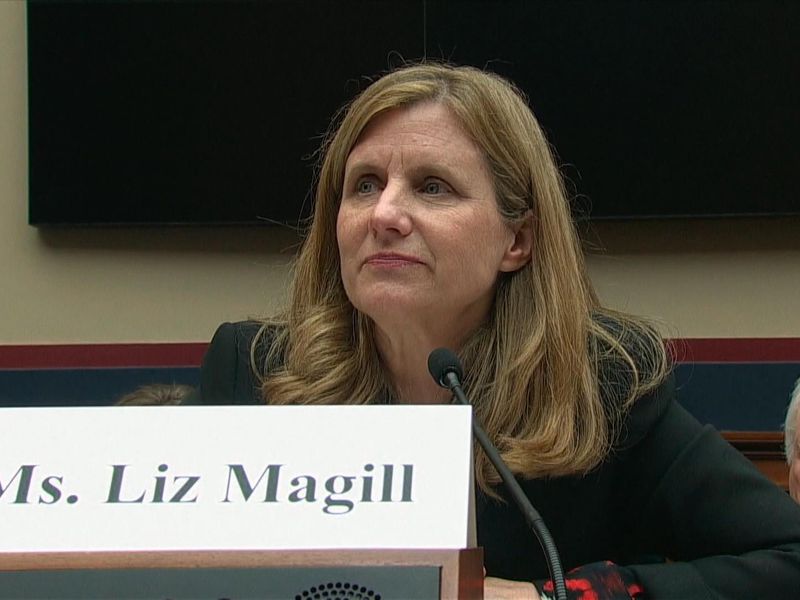The University of Pennsylvania is facing backlash and significant financial consequences after its handling of anti-Semitism on campus. In a bold move, Ross Stevens, founder and CEO of Stone Ridge Asset Management, announced on Thursday that he is withdrawing his $100 million donation to the university.
This decision comes after Penn's president, Elizabeth Magill, testified in front of Congress on Tuesday regarding the rise of anti-Semitic hate speech at universities. When asked if calling for the genocide of Jews violates the university's code of conduct, Magill avoided giving a direct answer, stating that it is a "context-dependent decision." This response sparked outrage and criticism from the Jewish community and lawmakers.
The presidents of Harvard University and the Massachusetts Institute of Technology (MIT) also testified at the hearing and avoided answering the same question. This led to further criticism and accusations of condoning hate speech.
The president of @Penn just cost the university a $100,000,000 donation.
That's a tenth of a billion dollars.
The donor says they won't reconsider unless she's fired.
I've never seen a tougher letter in my life that wasn't a declaration of war by a sovereign country. pic.twitter.com/k0f0nmoj0z
— Ezra Levant 🍁🚛 (@ezralevant) December 8, 2023
In a letter sent through his lawyers, Stevens informed Penn that he is withdrawing his $100 million donation of limited partnership units with his company. He stated that the university's handling of anti-Semitism violates the terms of their partnership agreement, including the anti-discrimination and anti-harassment policies.
Stevens also pointed out that Penn's "permissive approach" to hate speech and its "laissez faire attitude" towards harassment and discrimination against Jewish students go against Stone Ridge's policies and values.
This is not the first time Stevens has withdrawn a donation from Penn. In February, he also announced he was rescinding a previous $100 million gift to the university's business school, the Wharton School. Stevens believed that the school was prioritizing Diversity, Equity, and Inclusion (DEI) over academic excellence, leading him to redirect the gift to the University of Chicago.
Stevens' actions have sparked a debate about the limits of free speech on college campuses and the responsibility of universities to protect their students from hate speech and discrimination.
Penn's handling of anti-Semitism has also caused concern for its students. Pro-Palestinian demonstrators have recently disrupted the campus, holding large protests and scrawling graffiti with slogans like "Free Palestine." These actions have caused other students to plead with the administration to take action and prevent threats of violence.
In response to the backlash, Magill released a video Wednesday evening, where she apologized for her testimony in front of Congress. She stated that she "failed to address the fundamental issue at hand," which is the "irrefutable fact" that a call for genocide of Jews is "evil - plain and simple."
However, Stevens' withdrawal of his donation shows that an apology may not be enough to repair the damage done to the university's reputation. It also highlights the need for universities to take a stronger stance against hate speech and discrimination, and the consequences they may face if they fail to do so.

